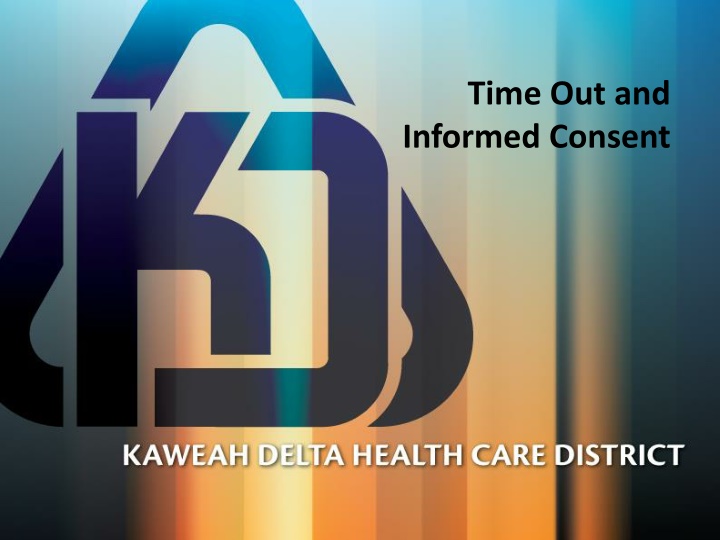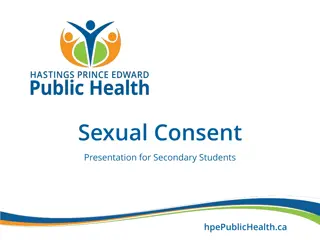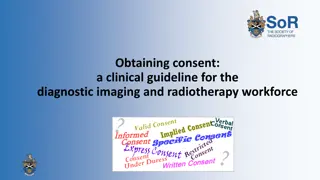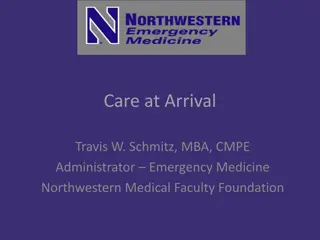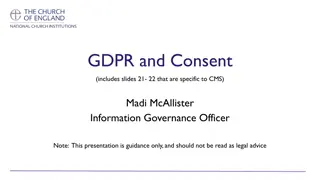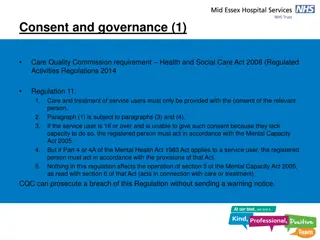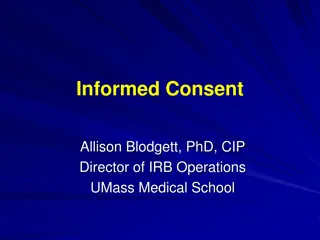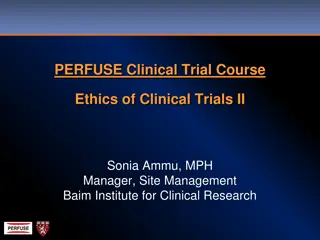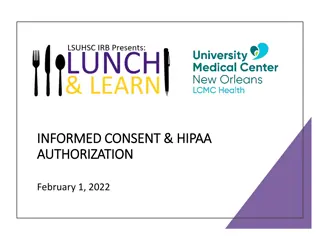Importance of Time Out and Informed Consent in Patient Care
Time Out and Informed Consent are crucial components of quality care and patient safety, aimed at preventing wrong-sided or wrong procedures. Time Out involves stopping all activities, positively identifying the patient, and confirming procedure details before proceeding. Informed Consent is a discussion with the patient to review risks, benefits, and alternatives, not just signing a form. Only credentialed providers can obtain consent, with clinical staff then acquiring the patient's signature. Both practices are vital for ensuring safe and effective medical procedures.
Download Presentation

Please find below an Image/Link to download the presentation.
The content on the website is provided AS IS for your information and personal use only. It may not be sold, licensed, or shared on other websites without obtaining consent from the author.If you encounter any issues during the download, it is possible that the publisher has removed the file from their server.
You are allowed to download the files provided on this website for personal or commercial use, subject to the condition that they are used lawfully. All files are the property of their respective owners.
The content on the website is provided AS IS for your information and personal use only. It may not be sold, licensed, or shared on other websites without obtaining consent from the author.
E N D
Presentation Transcript
Time Out and Informed Consent
Time Out and Informed Consent Both are the cornerstone of Quality care and Patient Safety Wrong sided or wrong procedures happen 9 times a day in the U.S. At Kaweah Delta, we have done surgery or procedures on the wrong patient, the wrong side or the wrong procedure. It can, and does, happen here. The answer is the well performed Time Out Ensuring a Time Out performed properly is the responsibility of the credentialed proceduralist. A member of the team may lead the Time Out, but only under the direct supervision and responsibility of the credentialed provider.
Major components of a Time Out are: Everyone in the room stops what they are doing and participates The patient is positively identified The Informed Consent form MUST be used as the source of information relating to procedure to be done, laterality, and any other pertinent details. All personnel in the room must agree to the correctness of each of the items above before proceeding
Informed Consent Informed Consent is the DISCUSSION with the patient that reviews risks, benefits, alternatives and addresses any questions the patient and/or family may have. It is NOT the signing of the consent form.
Informed Consent may ONLY be obtained by the credentialed provider who will be doing the procedure/treatment. (A covering provider who has privileges for the procedure/treatment being consented may also obtain consent.) NO individuals other than the above may obtain consent. Once consent is obtained, (the discussion has occurred) then any clinical staff member may obtain the patient s signature, consistent with the Informed Consent policy of KD. All consents are to be obtained using the Kaweah Delta Informed Consent form, with all appropriate information entered
